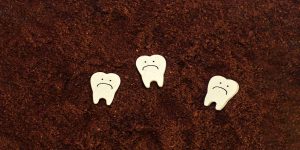Understanding and Treating Bad Breath
Bad breath, also known as halitosis, is a common problem many people struggle with. It can be embarrassing and can have a negative impact on our social confidence and overall well-being. There are different types of bad breath, such as morning breath and chronic bad breath.
Morning breath is very common and occurs when the mouth produces less saliva during sleep, allowing bacteria to grow. Chronic bad breath, on the other hand, is persistent and can have various causes, including poor oral hygiene, certain foods, medical conditions, and even medications.
This blog post aims to explore the common causes of bad breath and discuss effective treatment options. By understanding the root causes of halitosis, you can take steps to improve your oral health and regain your confidence in social situations. Whether you suffer from occasional bad breath or a more chronic issue, this guide will provide you with the information you need to address the problem and enjoy fresh breath. Looking for a trusted dentist in Toronto? Look no further than Pearl Dental Group for comprehensive dental care and a commitment to your oral health.
Read More: Veneers Cost in Toronto
The Science Behind Bad Breath
To understand bad breath or halitosis, we need to look at the science behind it. The primary cause of bad breath is the bacteria living in our mouths. These bacteria feed on food particles left in our mouths. As they break down the food, they release volatile sulfur compounds (VSCs). These VSCs are the main reason behind the unpleasant odor associated with bad breath.
The bacteria that cause bad breath usually live on the surface of our tongue. As a result, people with a coated or furred tongue are more likely to experience chronic bad breath.
Now, let’s understand the difference between the two main types of bad breath: morning breath and chronic bad breath. Morning breath is a very common occurrence that happens when we sleep. During the night, the production of saliva decreases, and this allows the bacteria in our mouths to multiply. As a result, we wake up with unpleasant breath. The good news is that we can easily remove morning breath by simply brushing and flossing our teeth, or by drinking a glass of water.
On the other hand, chronic bad breath is a more persistent issue that can be a sign of underlying problems. Chronic bad breath may be a result of poor oral hygiene, gum disease, tooth decay, or even certain medical conditions, such as diabetes or acid reflux. If you’re experiencing chronic bad breath, it’s important to consult with a healthcare professional to identify the root cause and find an effective solution.
By understanding the science behind bad breath and the different types of halitosis, we can take steps to improve our oral health and regain our confidence in social situations.
Bad Breath Causes
A variety of factors can lead to bad breath. Understanding these causes is the first step in addressing the problem. Let’s explore the most common causes of bad breath.
One of the primary causes of bad breath is poor oral hygiene. When you don’t brush and floss your teeth regularly, food particles and bacteria will grow in your mouth, which leads to the production of foul-smelling compounds. Dental professionals recommend brushing your teeth twice a day and flossing at least once a day to remove these food particles and bacteria. Neglecting to floss can also lead to gum disease, which is another major contributor to chronic bad breath. Additionally, using the correct brushing technique is crucial for maintaining good oral hygiene and preventing bad breath.
Another common cause of bad breath is the food and drinks we consume. Eating certain foods can make your mouth dry, making the problem worse. Sugary foods can also cause bad breath by feeding bacteria in your mouth, creating more smelly compounds.
Dry mouth, or xerostomia, is another major cause of bad breath. Saliva is crucial for keeping your mouth moist and washing away food particles and bacteria. When you have a dry mouth, the decreased saliva production allows these odor-causing elements to build up, causing bad breath. Dry mouth can be caused by different factors, including certain medications, or simply breathing through your mouth.
Tobacco use, whether it’s smoking or chewing tobacco, can also cause bad breath. Tobacco products can stain your teeth, cause gum disease, and dry out your mouth, all of which can lead to bad breath. Additionally, the chemicals in tobacco products can produce their own unpleasant odors.
Underlying medical conditions can also be a factor in chronic bad breath. Conditions like sinus infections, acid reflux, and diabetes can all cause bad breath by affecting the production of saliva or the presence of odor-causing compounds in the mouth or respiratory system. If you’re experiencing persistent bad breath despite good oral hygiene, it’s essential to consult with a healthcare professional to rule out any underlying medical issues.
By understanding the various causes of bad breath, you can take the necessary steps to address the problem and maintain fresh, clean breath.
Myths about bad breath
Many myths surround bad breath. Now that you know the common reasons causing bad breath ,let’s clear up some common misconceptions:
- Myth: Brushing your teeth after every meal guarantees fresh breath.
- Fact: Brushing your teeth is important, but it may not remove all the food particles stuck between your teeth. To effectively clean those areas and prevent bad breath, it is crucial to floss daily.
- Myth: Mouthwash is a cure for bad breath.
- Fact: Mouthwash can temporarily hide bad breath smells or kill bacteria. But it doesn’t solve the main reason behind the problem. To tackle bad breath, it’s important to maintain good oral hygiene and address the root cause.
- Myth: Only certain foods cause bad breath.
- Fact: Strong-smelling foods such as garlic and onions can cause bad breath. However, If you have poor oral hygiene bacteria can break down any food particles in your mouth, which can also lead to bad breath.
- Myth: Holding your breath prevents others from smelling bad breath.
- Fact: Unfortunately, this tactic doesn’t remove the odor source.
Pearl Dental Care in North York offers effective treatments to help eliminate bad breath.


Simple Solutions for Bad Breath
Dealing with bad breath can be frustrating, but there are several effective treatment options available. Let’s start by focusing on improving your oral hygiene.
First and foremost, it’s crucial to brush your teeth twice a day for at least two minutes each time with a fluoride-containing toothpaste. This will remove food particles and bacteria that can result in bad breath. Additionally, flossing daily is essential to clean the spaces between your teeth where your toothbrush can’t reach. This will remove plaque and bacteria that can cause odor. Another helpful tool is a tongue scraper, which can remove bacteria from the surface of your tongue, a common place for odor-causing microbes to live.
As for your diet, it’s a good idea to reduce or avoid strong-smelling foods, such as garlic, onions, and coffee, as these can contribute to bad breath. Staying hydrated by drinking plenty of water throughout the day can also help promote saliva production, which naturally helps wash away food debris and neutralize odors.
Professional dental treatments can also be beneficial in addressing bad breath. Regular dental cleanings can remove built-up plaque and tartar, while treating any underlying gum disease can significantly improve the overall health of your mouth and reduce bad breath.
Over-the-counter products, such as antiseptic mouthwashes, can provide temporary relief for bad breath. However, it’s important to use these products as directed and not as a substitute for proper oral hygiene.
Easy Habits to Prevent Bad Breath
To prevent bad breath, it’s essential to maintain a consistent oral hygiene routine, including brushing, flossing, and using a tongue scraper. Choosing a healthy diet and staying hydrated can also go a long way in keeping your breath fresh. Regular visits to your dentist for professional cleanings and checkups are also crucial for identifying and addressing any underlying issues that may be contributing to bad breath.
Conclusion
Addressing bad breath is not only important for your social well-being but also for your overall health. By understanding the causes and taking the necessary steps to improve your oral hygiene, you can regain confidence and enjoy fresh, clean breath. If you’re still struggling with persistent bad breath, don’t hesitate to schedule an appointment with us at Pearl Dental Group, with our team of skilled dental professionals we can provide personalized advice and treatment options to help you banish bad breath and regain your confidence.

Book Your Dental Appointment
Bad breath can be caused by various factors, including poor oral hygiene, certain foods, dry mouth, smoking, medical conditions like gum disease or sinus infections, and even certain medications.
You can perform a simple test by licking the inside of your wrist, letting it dry for a few seconds, and then smelling it. Another method is to ask a trusted friend or family member for their honest opinion.
Temporary solutions include brushing and flossing your teeth, using mouthwash, chewing sugar-free gum, drinking water, and avoiding foods with strong odors.
Long-term prevention involves maintaining good oral hygiene habits, including brushing your teeth twice a day, flossing daily, cleaning your tongue, staying hydrated, and visiting your dentist regularly for check-ups and cleanings.
In some cases, persistent bad breath can be a symptom of underlying health issues such as gum disease, diabetes, liver or kidney problems, or respiratory tract infections. It’s important to consult a healthcare professional if bad breath persists despite good oral hygiene practices.
Contact Us
Pearl Dental Group: Specializing in crafting radiant smiles and elevating dental health for over 30 years! Are you curious to know about sparkling smile secrets? We at Pearl Dental Group provide comprehensive and high-quality dental services through our expert team. Pearl Dental Group is ready to provide you with a wide range of services in both general and cosmetic dentistry in Toronto. Our professional dentists prioritize your health and the aesthetics of your smile.
Pearl Dental Group provides a comprehensive range of dental services, including teeth whitening, root canal treatments, dentures, dental implants, dental crowns, gum disease therapy, dental veneers, dental bonding, dental bleaching, pediatric dentistry, tooth extraction, and more, all delivered with the highest quality and affordability.
Book your appointment today and experience a professional dental care service in a warm and friendly place. Contact us; we are waiting for you.







